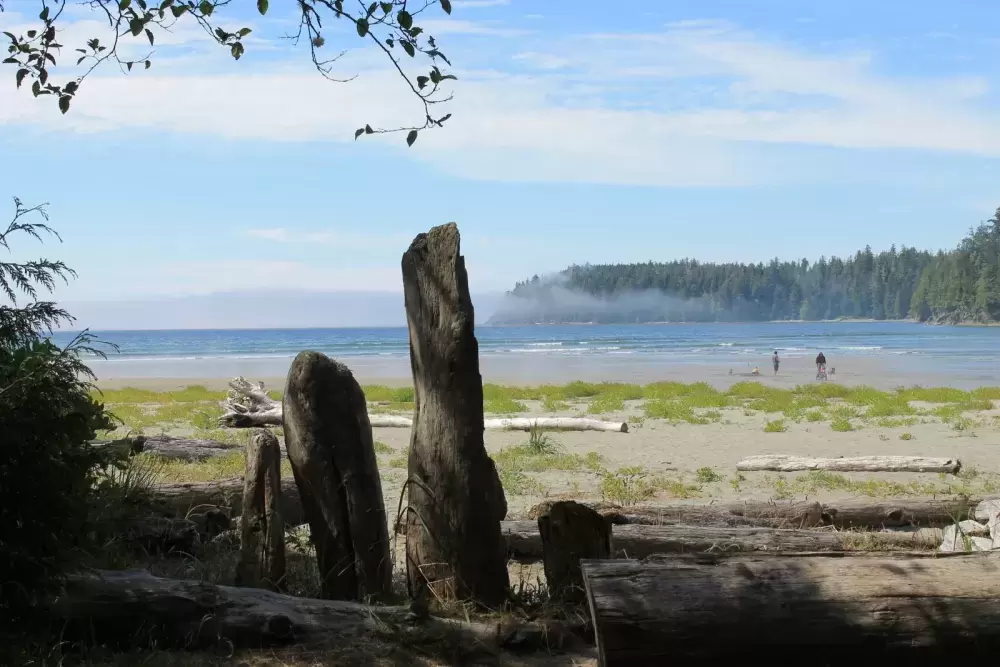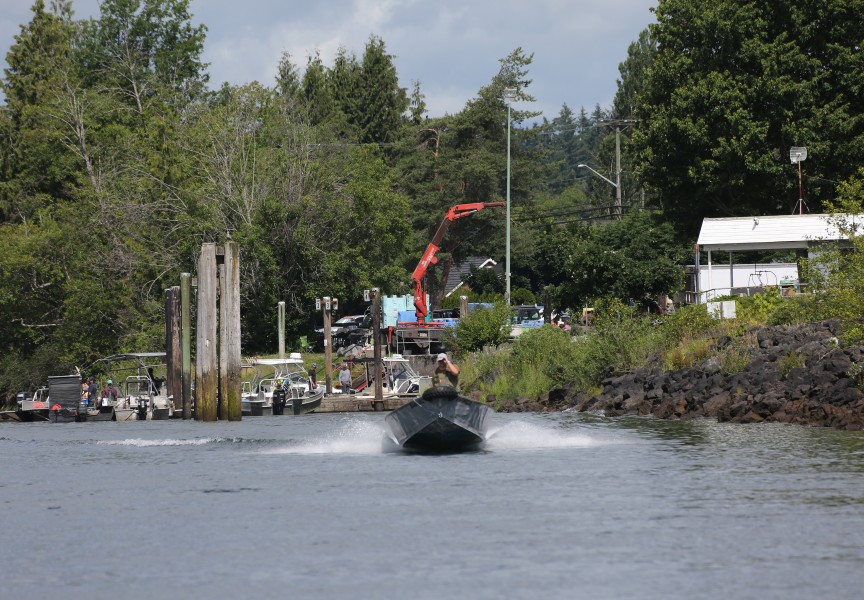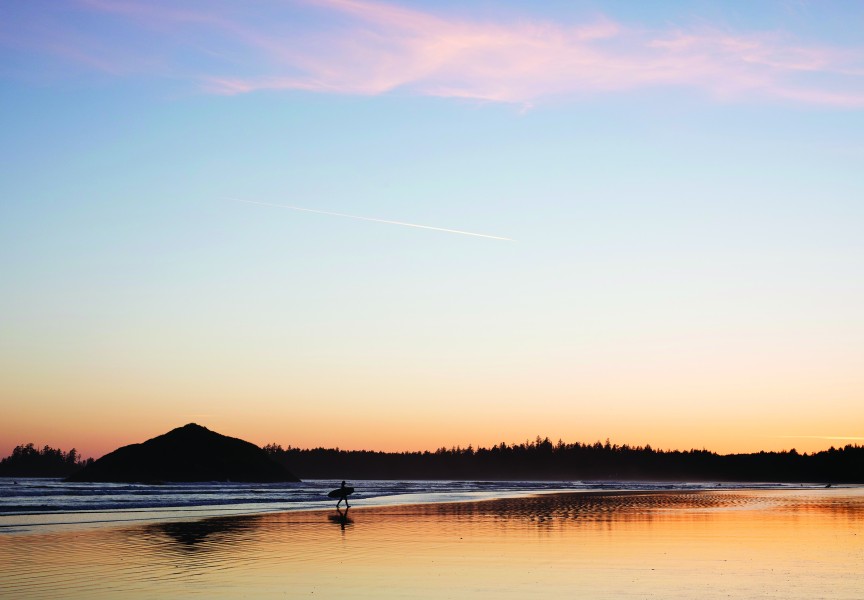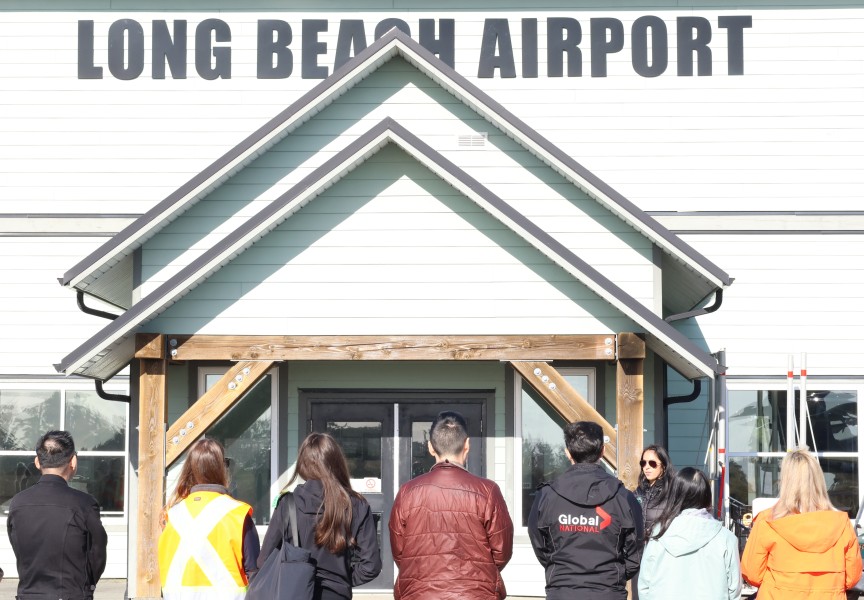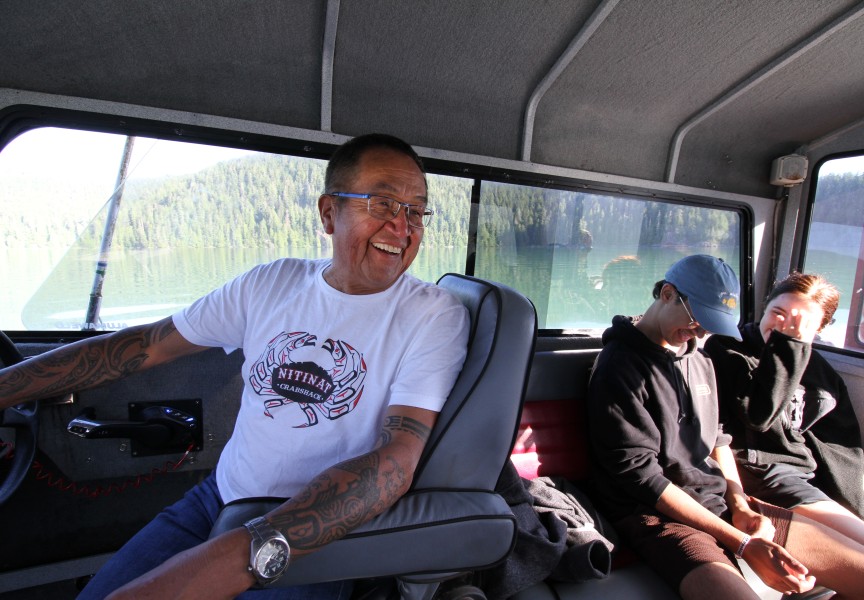Huu-ay-aht First Nations will be receiving more than half a million dollars to expand its Pachena Bay Campground.
But what is not known yet is whether the Nuu-chah-nulth First Nation will indeed be opening its campground in 2021 or if the COVID-19 pandemic will result in a second consecutive year of its closure.
It was announced earlier this month that Huu-ay-aht First Nations would receive a grant worth $510,340 through the province’s Community Economic Recovery Infrastructure Program.
These funds will be utilized to upgrade the existing campground.
The Pachena Bay Campground is owned by the Huu-ay-aht Group of Businesses, which in turn is owned by the Huu-ay-aht First Nations.
This month’s funding announcement is actually the second major grant the campground has received. It was previously awarded a $270,000 federal grant.
Money from that grant is currently being utilized to construct a new access road, about one kilometre long, to the campground.
Work on this new access road is currently underway and should be completed within the next few weeks. Huu-ay-aht Chief Councillor Robert Dennis said it expected to cost between $100,000 to $110,000 to build the new road.
“The access road is going to enable people to take a different route,” Dennis said. “That will bring a lot of comfort to our community.”
Many residents from the village of Ancala within Huu-ay-aht First Nations have expressed their concerns of the out-of-town traffic through its roads. These concerns have been exacerbated by the pandemic.
Patrick Schmidt, the CEO of the Huu-ay-aht Group of Businesses, said a decision on whether to open the campground for the 2021 season has yet to be made since the pandemic is still ongoing.
“We’re in discussions right now with the Nation how we would operate it if we were to open,” Schmidt said.
Many of the adults living in Ancala have already been vaccinated.
But officials from the First Nation must decide on whether it would be wise to open the campground, which undoubtedly would attract visitors from across the province and potentially even out of province.
There is currently no system to assess whether potential campground visitors have been vaccinated.
Schmidt, however, is optimistic the campground just might be reopening at some point this year.
“We’re looking at it,” he said. “It certainly looks more optimistic than last year.”
The campground season traditionally runs from the long weekend in May until mid-October.
Schmidt said officials are trying to determine whether a later opening date would be best this year.
“There’s no assurances,” Schmidt said. “It may be that we open later on, once we get to July.”
Also being looked at is whether it would be best for the 2021 season to stagger which campsites are available within the campground. And a decision must also be made on whether to open or leave the shower facilities closed.
Thus, Schmidt said there are plenty of factors which need to be taken into consideration because of the pandemic.
“The trick is to make sure everybody is comfortable with what we are doing,” he said.
Schmidt also said that news of the provincial grant arrived at an opportune time since representatives from the First Nation have been keen to upgrade the campground.
“We’ve been planning to expand for a while,” he said. “It’s gotten to the point where the campground is full.”
Besides updating the campground’s water and sewage systems, Schmidt said an initial expansion will include anywhere from 20-40 new sites being made available.
“We’re seeing what we can do before the season and what we can do during it,” he said.
The campground could potentially have various phases of expansion. Upgrades currently being planned won’t take long to complete, Schmidt said.
“It will be done next year for sure,” he said.
The provincial grant was also welcome news for Huu-ay-aht First Nations’ officials. That’s because the First Nation suffered a massive financial blow in 2020 by not opening its campground to visitors.
Like many other Indigenous communities which rely heavily on their tourism businesses, Huu-ay-aht reps are keen to return to some sort of normalcy this year.
Huu-ay-aht First Nations was one of 38 rural communities to receive some funding through the Community Economic Recovery Infrastructure Program.
Grants in the provincial government’s latest funding announcement totaled $20 million.
The B.C. government has pledged up to $90 million through the program, geared at supporting community economic resilience, tourism and heritage as well as rural and urban economic development projects.

